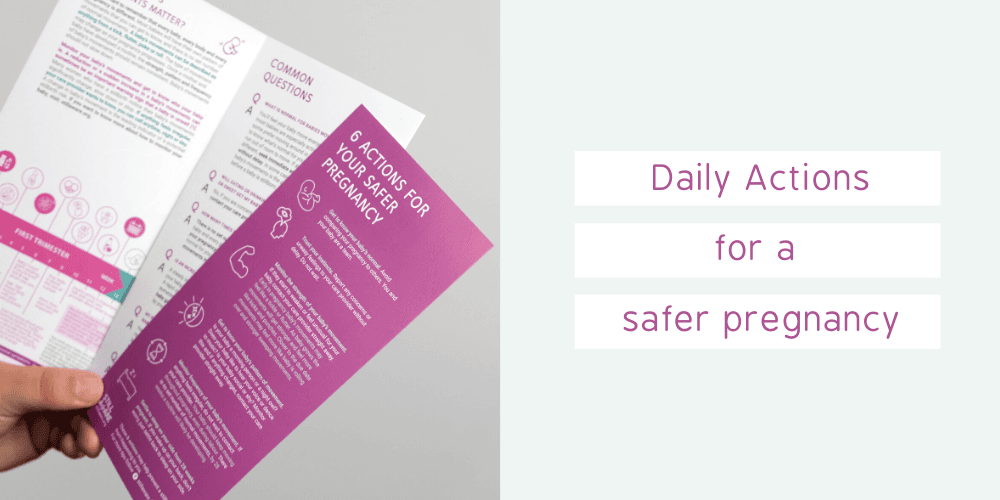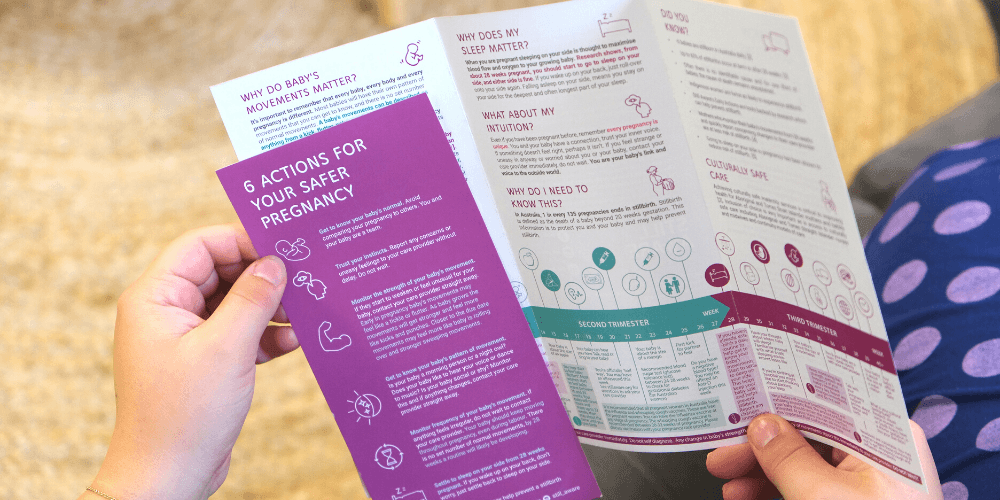Still Aware 'Daily Actions'
The Still Aware 'Daily Actions' are a set of key actions that may help prevent a stillbirth from happening to you.

This information is not intended to scare or alarm you, but simply to create awareness of the easy steps you can take for a safer pregnancy! The Still Aware Daily Actions are:
Get to know your baby's normal. Avoid comparing your pregnancy to others. You and your baby are a team.
Trust your instincts. Report any concerns or uneasy feelings to your care provider without delay. Do not wait.
Monitor the strength of your baby's movement. If they start to weaken or feel unusual for your baby, contact your care provider straight away. What will your baby's movements feel like? Early in pregnancy baby's movements may feel like a tickle or flutter. As baby grows the movements will get stronger and feel more like kicks or punches. Closer to the due date movements may feel more like baby is rolling over and stronger sweeping movements.
Get to know your baby's pattern of movement. Is your baby a morning person or a night owl? Does your baby like to hear your voice or dance to music? Is your baby social or shy? Monitor this and if anything changes, contact your care provider straight away.
Monitor frequency of your of your baby's movement. If anything feels irregular, do not wait to contact your care provider. Your baby should keep moving throughout pregnancy, even during labour. There is no set number of normal movements, by 28 weeks a routine will likely be developing.
Settle to sleep on your side from 28 weeks pregnant. If you wake up on your back, don't worry, just settle back to sleep on your side.
A copy of our 'Daily Actions' fridge magnet is sent out with every 'Your Pregnancy' Brochure so you can reminder yourself daily. Be sure to order yours today.
